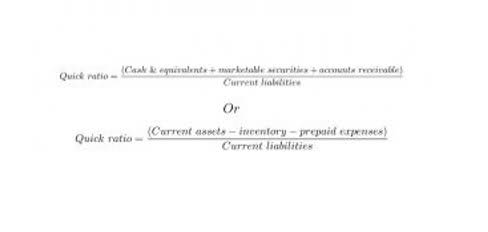
The current volatile market makes it more important than ever to understand the rent escalation clauses in current and future commercial lease agreements. Rocketlane provides greater visibility on all your retainer projects and brings your clients along for the ride with exceptional project transparency. There are bound to be situations where a client requests work beyond what was stated in the retainer agreement. To formally accept the conditions outlined in the retainer agreement, both parties must sign the agreement and enter https://dev-practiceforbusiness.pantheonsite.io/cpa-exam-costs-and-fees-in-2025/ the current date alongside their signature. Once the signatures are in place, both parties are legally bound to the terms of the agreement. You can also integrate your payment and billing methods with a PSA platform like Rocketlane.
Define the scope of work
In limited situations, such as when a jurisdiction allows general (or “true”) retainers or narrowly defined advance payments, attorneys may place funds directly into their operating account. In these cases, attorneys must clearly outline the arrangement in the engagement agreement and ensure it aligns with local ethics rules. Many attorneys use the terms “deposit” and “retainer” interchangeably, but doing so can lead to serious consequences. When lawyers incorrectly label advance fees as non-refundable retainers, they may mislead clients and violate state bar ethics rules. Retainers are built on trust and long-term collaboration, so nurturing strong client relationships is key. Personalized attention, responsiveness, and transparency are all important for long-term working relationships.Building trust fosters client loyalty.
How Retainer Fees are Paid
You don’t need to pay extra money for a separate attorney if you have such a policy. Similarly, if you are a union member or an employee with a large company, having a lawyer to help you with employer problems might be part of your benefits. To provide the best possible service, a recruiter must deeply understand the client’s business, culture, and hiring goals. During the intake process, recruiters should ask questions to gather as much detail as possible about the role and the type of person who would succeed in it.
Is my security deposit with a landlord the same as a legal retainer?

This could occur in divorce cases, estate planning, real estate, breach of contract claims or a wide variety of other what is a retainer fee legal cases. A general retainer is a specific type of lawyer retainer that is not considered a deposit for legal services or prepayment of legal services. Instead, when you pay this kind of retainer, you are paying to reserve an attorney or firm’s time. Choosing between flat fee and hourly rate arrangements is a significant decision within retainer agreements, impacting both cost predictability and the nature of the service relationship. The retainer fee is used to secure the availability of a professional’s services and cover the initial expenses of a project or engagement.

For example, if you’re hiring a lawyer for ongoing legal support, you may be asked to pay a retainer fee at the outset of your contract. It is important for lawyers to keep accurate records of retainer fee accounting to ensure that they are not overbilling or underbilling clients. Overbilling can lead to ethics violations and loss of clients, while underbilling can lead to financial losses for the law firm. Additionally, lawyers are required by law to keep accurate records of client funds, including retainer fees.
Move your service delivery into the fast lane
If you are hiring an attorney on retainer to help you check things like employee contracts when you hire new people, make sure the attorney you hired has business experience. A one-time flat fee paid particularly for a single case is called a special retainer. Understanding how do legal retainers work is crucial when entering into an agreement with an attorney. The retainer model tends to attract higher-caliber recruiters, who may charge more but are dedicated to finding top-tier candidates. The recruiter can afford to dedicate the necessary time and resources to sourcing, screening, and interviewing candidates in-depth, which leads to a higher quality of hires for the client.

The funds you provide are the retainer, held as prepayment for the legal assistance your attorney will provide. Due to the way in which retainer fees are calculated, you might want someone more experienced, especially if you are hiring them for your business. Just because somebody offers a less expensive retainer fee does not mean they are the better option. You should evaluate attorneys on retainer the same way you assess any attorney you would otherwise hire for your personal or professional needs. In this situation, an attorney has a separate trust account into which that retaining fee is deposited. Then, as they continue to work on your case or project, they draw money from that account to cover the expenses.
- For example, if a real estate consultant charges $200 per hour and expects to work 30 hours on a project, the retainer fee would be $6,000.
- Including a termination clause is also prudent, outlining the conditions under which either party can end the agreement.
- A legal retainer agreement is a document that specifies you will have an attorney-client relationship after you pay the retainer fee for a specific period.
- You may also see this type of contract referred to as an attorney fee agreement or legal services agreement.
- Understanding how retainer fees work will help you navigate the complexities of the legal system and effectively budget your legal expenses.
- An advance payment retainer requires careful consideration and clear understanding of the terms, as the funds are generally not refundable once paid.
Earned retainers reflect completed progress and create transparency for both parties. If the client needs an attorney for a long-term relationship, the client may engage the attorney on a retainer basis. The retainer is usually a fixed amount that the client commits to pay the attorney on a monthly basis in exchange for the opportunity to engage him in the future when legal issues come up. Additional funds are often needed when the initial retainer is depleted faster than expected due to increased legal work. For example, a straightforward case that evolves into prolonged litigation may require the client to replenish the retainer.
What is a Retainer Fee and how does it work?
Freelancers often struggle to find a stable source of income and a predictable cash flow. A retainer agreement is a great way to ensure that they have a stable income over a long period of time. One party, like a contractor, agrees to provide certain number of hours or certain deliverables each month to the client. In exchange for locking in those gross vs net hours or deliverables, the client pays a certain amount of fee, called the retainer fee, in advance to the contractor.
This transparency and clarity contribute to a more seamless and mutually beneficial working relationship. You may also decide that other alternative fee arrangements are a good fit for your firm. Cloud-based practice management solutions, like Clio, make it easy to offer this range of payment options.
